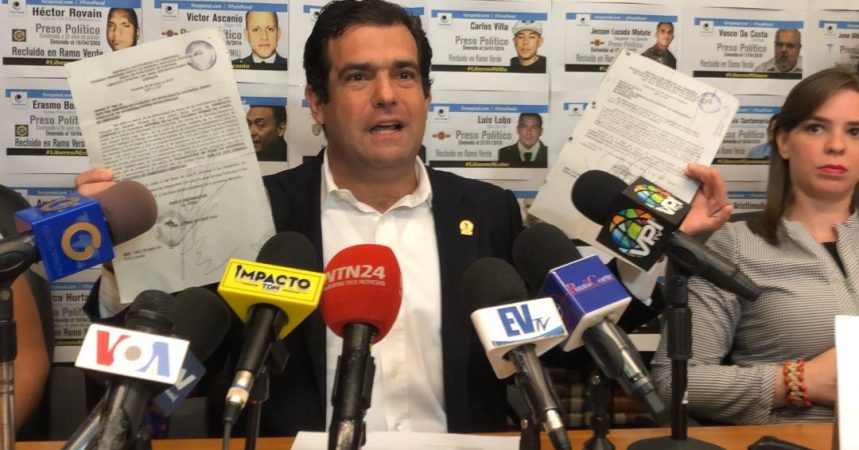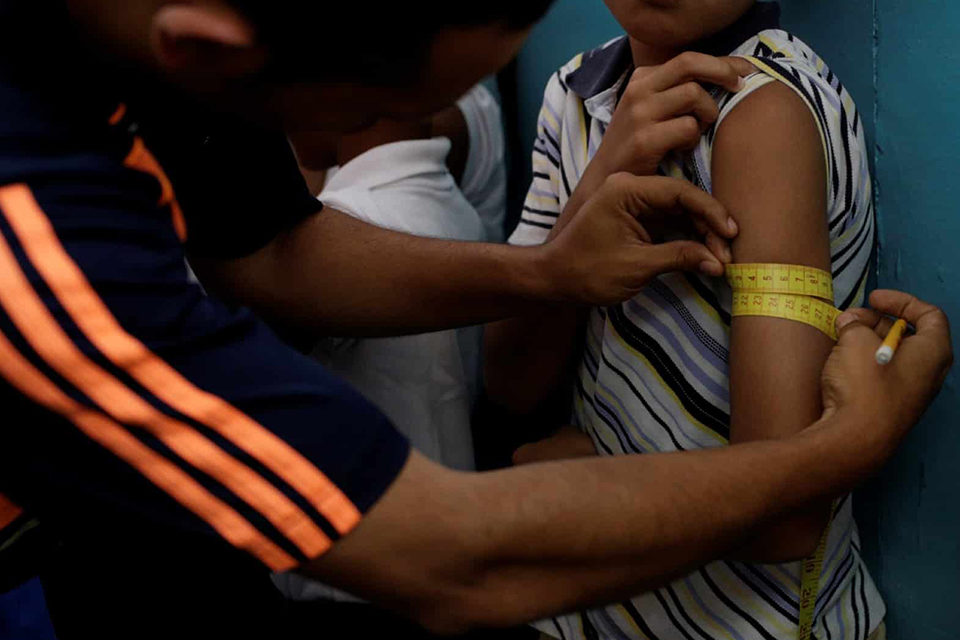The most recent report from the Human Rights Observatory at Universidad de Los Andes (ODH-ULA) studied the limitations and restrictions faced by students, professors, and workers of Venezuelan universities during the first nine months of quarantine due to the COVID-19 pandemic, between March and December 2020. The report shows that the “Plan Universidad en Casa” (Home University Plan), announced by the Nicolás Maduro regime at the beginning of the quarantine, not only proved impossible to implement but constituted another weapon of political control over higher education, to the detriment of university autonomy.
Throughout three chapters, the report details the critical situation that universities were already experiencing before the quarantine, the factors that made and continue to make unfeasible the implementation of the “Plan Universidad en Casa”, and the violations of the right to education and academic freedom that took place during the period of study.
The critical situation of Venezuelan universities before the quarantine
Venezuelan universities have been in crisis since 2008 when a budget cuts policy was adopted by the National Executive branch. University budgets are barely enough to pay increasingly precarious salaries; this situation makes it impossible to allocate resources for maintenance, investment, and the update of computer equipment and other technologies, essential for implementing remote education under the “Plan Universidad en Casa”.
The crisis of the national electricity system, which experts had warned of since 2005, is another factor that hinders the development of online education. In 2010, Hugo Chávez declared a national electricity emergency by decree. Since 2015, several states of the country have been subjected to daily electricity rationing, especially during the dry season. Between March and June 2020, the states of Mérida, Táchira, Trujillo, and Zulia registered blackouts of 6 to 18 continuous hours.
Although remote education exempts the need to travel to university campuses, the electricity crisis leads to the use of power generators during blackouts, whose engines run on gas or diesel. An acute shortage, which is even more accentuated outside Caracas, prevents free access to fuel, whose sale is subject to restrictions dictated by the regime. On several occasions, the web servers of Universidad de Los Andes (ULA) had to be shut down as a result of the lack of fuel to run the power plants during blackouts. “On April 12 and 13, 2020, the ULA website was down for more than 12 hours ”, the report found.
In 2009 Hugo Chávez signed a presidential decree for the “elimination of luxury or superfluous spending in the national public sector.” This policy prohibited the acquisition of mobile phone and international direct dialing services, equipment and technological platforms, and the use of the Internet without the authorization of the Vice President of the Republic. The decree “stopped technological development and marked the beginning of the submission of the universities to the discretion of the National Executive branch and, consequently, the progressive obsolescence and deterioration of the technological system because, in general, authorizations were not granted to the universities,” the report states.
A year earlier, in 2008, a law on foreign exchange imposed a series of restrictions on the imports of goods necessary for education, science, and culture. Books, paper, computers, and telecommunications equipment, among others, were declared non-essential imports and thus ceased to have access to a preferential exchange rate.
The infeasibility of the “Universidad en Casa” plan
In April 2020, the Ministry of University Education launched the “National Plan for the prevention and containment of the coronavirus (covid-19) in the university sector”. Subsequently, the regime announced the implementation of a plan called “Universidad en Casa“, which was not designed by the competent Office of Planning of the University Sector (OPSU), as established by the Law on Universities, nor formally presented to the different universities.
Besides the informality and the deficiencies of the “Universidad en Casa” plan, its implementation is unfeasible in the context of the Complex Humanitarian Emergency that Venezuela is experiencing. Online education is not possible without the guarantee of functioning public services, mainly electricity and telecommunications. Likewise, professors and students who do not have the equipment needed for online education are excluded and end up being discriminated against. A survey carried out by the Observatory on Universities (OBU) showed that 39% to 47% of university students do not have a laptop.
Although the Ministry delivered tablets to university professors in October and November 2020, the observatory denounced that the initiative was discriminatory since it did not include professors with part-time contracts. The tablets are branded Canaima, hardware designed for student use and without the operational capacity to run essential programs for the development of university content.
Violations of the right to education and academic freedom
During the COVID-19 quarantine in 2020, the Nicolás Maduro regime increased control over the university sector, transgressing autonomy and academic freedom with discriminatory actions. In addition to the aforementioned deficiencies that impede the development of online education in Venezuela, professors, students, and university workers became victims of violations of their human, economic and social rights.
The precarious wages of professors and university workers constitute a violation of their labor rights and a key factor in their inability to teach online since most professors do not have the means to pay for data plans or internet services. According to the Federation of Associations of University Professors of Venezuela (FAPUV), the real salary of professors has lost 99% of its value since 2001. By December 2020, the maximum monthly salary for a full-time professor did not reach $7.
Students did not escape the discriminatory practices of the regime during the quarantine in 2020. On May 27, César Trómpiz, Minister of University Education, announced the payment of student scholarships through the “Carnet de la Patria” (a parallel ID card that has been widely criticized), for an equivalent of $1.60. To access this benefit, students had to be enrolled in the Sistema Patria, a mechanism of social control created by the regime.
Persecution, censorship, and threats by regime officials were also registered during the quarantine in 2020. The members of the Academy of Mathematical, Physical and Natural Sciences, most of them university professors, were threatened by Diosdado Cabello, then president of the illegitimate National Constituent Assembly (ANC), after issuing a scientific report on the COVID-19 situation. Likewise, Freddy Pachano, director of postgraduate studies at the Faculty of Medicine of Universidad del Zulia (LUZ), received threats from the state governor for making comments on the evolution of the pandemic in the state. Pachano had to go into exile after the incident.
Finally, the ODH-ULA recorded 193 robberies and thefts in university campuses between March and December 2020, as well as 29 other acts of vandalism and invasions. Most of these crimes remain unpunished and their perpetrators have not been identified. These facts constitute violations of the right to education, which must be guaranteed by the State through the actions of the public security organs and the justice system.
So far in 2021, the conditions and factors that limit remote education in Venezuela have not disappeared and, in some cases, have been accentuated. The observatory urges the Venezuelan State to guarantee the right to education with quality, equity, and inclusion during the health emergency, as established in the report on Education in the time of COVID-19, published by the ECLAC and UNESCO in August 2020.
Read the full report in Spanish HERE.
Translated by José Rafael Medina




